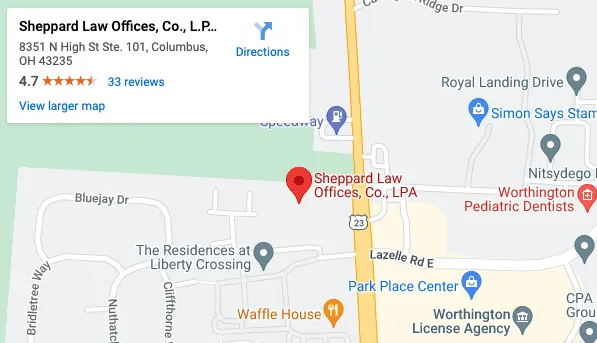Select a Reputable Tax Law Firm
It is not realistic to believe the television advertisements and radio commercials by companies offering to resolve your tax debt for “pennies on the dollar”. If it sounds too good to be true than it is too good to be true. You need to find a tax firm with an accredited tax attorney, certified public accountant and/or enrolled agent to assist you in settling your tax problems. While the Offer in Compromise Program exists at the IRS level and at certain state levels, it is erroneously portrayed that it applies in almost every case. Your financial ability dictates the resolution to your tax problem. A company cannot promise you to settle your tax obligation. Your tax representative must work within the bounds of federal and state tax laws (both substantive and procedural) to help you resolve your tax problems.
Know What You’re Paying For
Your tax representative should be able to communicate what he or she will be doing for you and what the cost of that service will be. Some tax advisors use a fixed fee arrangement while others use an hourly rate. At Sheppard Law Offices, we primarily use a fixed fee arrangement, but we also utilize the hourly arrangement in certain tax matters when the time expended on a certain matter cannot be reasonably foreseen. Your tax attorney should be able to inform you what you need to be completed and the cost for that service. It is a red flag if a tax representative quotes a sizeable retainer (i.e. $7,500 or $10,000, or more) without providing any justification for the work that needs to be completed. The services to be rendered and the related costs should be in writing and discussed with you before any work is performed.
Wage Garnishments
Once a civil lawsuit is finalized and the Plaintiff is awarded a money judgment, the Plaintiff may seek to recover the award plus costs through a wage garnishment of the Defendant. The Plaintiff or the Plaintiff’s counsel will file for a wage garnishment through the clerk of court and the clerk of court will send the wage garnishment papers to the debtor’s employer. The employer will have 5 business days to reply to the notice and as soon as practicable commence the wage garnishment.
The debtor is also notified of the wage garnishment. That is when the debtor usually takes action to call a bankruptcy attorney to stop the wage garnishment from taking place. Only by filing a petition in bankruptcy will the wage garnishment stop. The debtor may need time to file for bankruptcy and so it is recommended for the debtor to request a garnishment hearing to try to reduce the percentage of wages being garnished.
On the day of filing the bankruptcy case, a notice called a Suggestion of Stay is prepared and filed in the court from where the judgment was rendered. Any monies garnished from the debtor’s pay after the date of filing the bankruptcy will always be returned to the debtor. Also, at our office, we send a fax of the suggestion of stay to the employee’s human resources or payroll department in the expectation to avoid any additional wage garnishment. We also send a copy of the Suggestion of Stay to the Plaintiff or Plaintiff’s attorney.
Another issue arises when a money judgment is reduced to a certificate of judgment, also called a judicial lien. In bankruptcy, the debt itself may be discharged, but the judicial lien survives the bankruptcy unless the lien is avoided. The lien avoidance action in bankruptcy releases the judicial lien if the lien impairs a state law exemption on any real estate or personal property. If a judicial lien is not avoided, then in the future when the debtor tries to transfer the property, the lien will have to be satisfied or paid before the transfer is permitted. Therefore, if it is possible and reasonable to avoid the lien while in bankruptcy it should be undertaken. A state tax lien or a federal tax lien cannot be avoided.
Debtor Education
One of the major bankruptcy law changes that occurred in late 2005 was the requirement that each debtor filing for bankruptcy (either Chapter 7 or Chapter 13) must complete both a credit counseling course and a personal financial management course. The credit counseling course must be completed within 180 days before filing for bankruptcy and the personal financial management course must be completed before the Order of Discharge. The courses can be completed online or by telephone. The average cost of debtor education is approximately $25.00. In Chapter 13 cases, some Chapter 13 trustee offices offer the personal financial management course for free. Your bankruptcy case cannot be filed without you taking the first course and you do not receive your discharge without taking your second course.
Contact the IRS and State Taxing Authorities Immediately
If you receive in the mail a notice informing you of your outstanding tax obligations, including interest and penalties, or perhaps a letter requesting documentation from you, it is very important to read the entire notice or letter carefully and then either contact the taxing authority yourself or hire a tax professional to help you out. Often times, people start speculating what might happen if they contact the IRS rather than just calling the IRS to find out exactly what is needed to resolve the tax matter.
It would not be advantageous to divulge personal and/or business financial information over the telephone to the taxing authority, but it is certainly reasonable to ask enough questions to better understand what the taxing authority requires of you and the related deadlines.
Most IRS Revenue Officers are easy to work with as they have internal deadlines to meet and they want to resolve your matter too. Field Auditors are also easy to work with. Their objective is to thoroughly complete the audit within a timely fashion. The easier you make their jobs, you will probably see that they make your life easier too.
Most people are not knowledgeable about our taxing system, and so if you get a tax bill that you disagree with or don’t understand, you are better off to contact a Tax Attorney first before attempting to resolve the tax matter with the IRS alone.
Get Current
If you are trying to resolve a tax problem, no IRS Revenue Officer or Special Counsel will work with you, unless you are current in your tax filings. For example, if you need to establish an Installment Agreement but you have not filed your last year’s income tax return yet or if you have not paid your estimated payments for the current year, you must file the required tax returns (and in the case of estimated tax payments, pay them fully) before the IRS will even consider looking at your financials to determine a reasonable installment agreement.
You need to know what your tax problem is before you can become compliant. Then, once you get compliant, you can negotiate your tax debt with the IRS and state taxing authority. At that point, you will need to know what options are reasonably available and feasible to you given your financial condition.
You should also know whether all of your tax returns have been received and processed by the IRS or state taxing authority before accepting any tax bills at face value. It can take a few months to several months before tax returns are processed. A Revenue Officer may be looking to levy against your bank accounts or vendors or garnishing your wages when your total tax obligation may not be calculated yet.
Offer in Compromise
The IRS and certain state taxing authorities maintain an Offer in Compromise Program. The purpose of an OIC program is to resolve tax problems when it is unlikely that the taxpayer will be unable to pay off the entire tax obligation. The IRS can accept a less than full amount of what you owe when it is doubtful that the IRS will be able to collect the entire amount due from you or if collection actions would create an economic hardship for you.
The cost to proceed with an OIC is expensive, but it may be worth it in some cases. There is an application fee and the required initial payment must be made according to the type of OIC being applied for.
It is very important to be able to justify your personal and/or business financial status with bank statements, profit, and loss statements, pay stubs, retirement account and investment statements, vehicle titles, deeds, mortgage statements, monthly budget, etc.
Installment Agreement & Currently Non-Collectible Status
Although an offer in compromise may be worth trying in some cases, it is more likely that the IRS and state taxing authorities will enter into an Installment Agreement with you or determine your case to be in a currently non-collectable status.
An Installment Agreement allows you to pay your tax debt in a smaller, more manageable amount normally on a monthly basis. The monthly payment is determined by the amount of tax debt you owe and your ability to pay your tax debt within the legal time limit for the IRS to collect from you.
There is a user fee for an Installment Agreement. If you default on your Installment Agreement and you wish to reinstate your Installment Agreement, then there is a reinstatement fee as well.
While an Installment Agreement is being reviewed for consideration, the IRS will normally not pursue any collection activities against you. Further, if your Installment Agreement Request is rejected, the IRS will not collect for an additional 30 days to provide you time to appeal the rejection.
Depending on the amount of tax debt you owe, your financials may or may not be required to be turned over to the IRS. Interest and penalties on your unpaid tax debt continue to accrue while you are in either an Installment Agreement or Currently Non-Collectable Status.
The IRS can determine that you cannot presently pay any of your tax debt, so they will delay collection until your financial condition improves. The periodic review of your financial condition is every 1-2 years.
Be Honest
It is imperative that you are honest and upfront with your Tax Attorney concerning your past and present personal and/or business financial situation. You must provide your tax professional with all of the documents that he or she requests from you. You cannot just turnover what you want to turnover. You will do yourself an injustice if you are not forthcoming in working together with your tax attorney.
Copies, Not Originals
You should never provide your original documents to the IRS or state taxing authorities. First, they can lose or misplace your documents. Your tax file may be sent to different agents and offices across the nation. Second, if you have to appeal your case, you need your documents to substantiate your tax position. Third, you will need your documents for audit purposes.
Gather Your Documents
Often times the lack of documentation proves to be the downfall of a taxpayer. Maintaining good record keeping is extremely important. Be ready to provide at least the following documents to your Tax Attorney:
- Prior Years’ Tax returns with all schedules and supporting documentation
- Prior Years’ Forms W-2 and Forms 1099
- Profit and Loss Statements
- Asset and Debt Lists with Values
- Monthly Budget of Personal Expenses
- Mileage Logs
- Paid Receipts
- Mortgage Statements
- Vehicle Titles
- Investment Statements
- Retirement Account Statements
- Life Insurance Policies
- Annuity Contracts
Contact Sheppard Law Offices Today
Do you still have concerns about avoiding problems with the IRS? Or, perhaps you have already encountered problems but are unsure of how to proceed? If so, we urge you to give us a call today. Tax attorney Kenneth L. Sheppard, Jr. is here to help protect Ohio taxpayers from the IRS and all that it entails!



